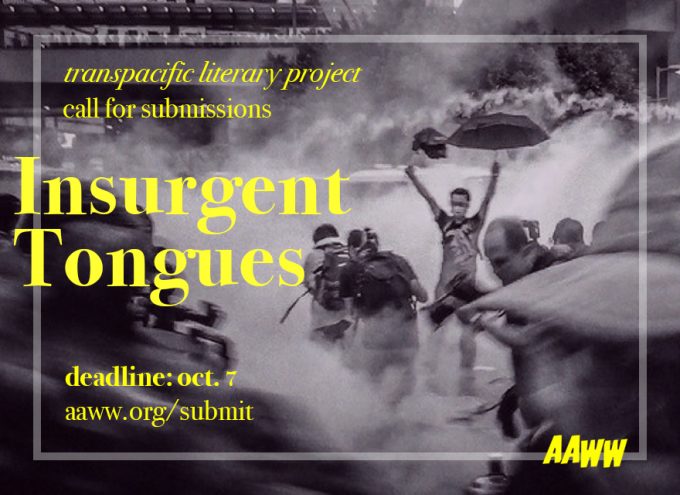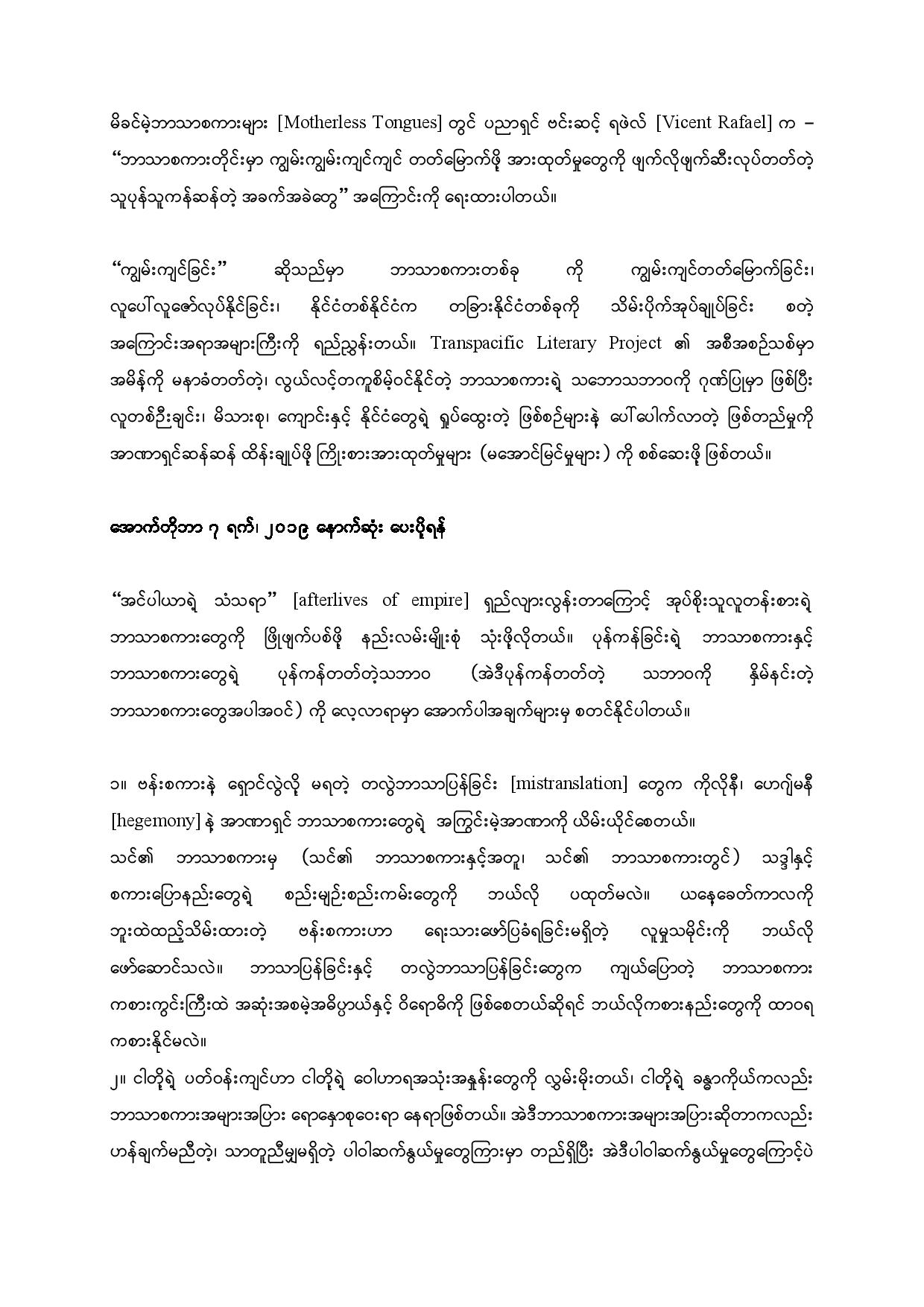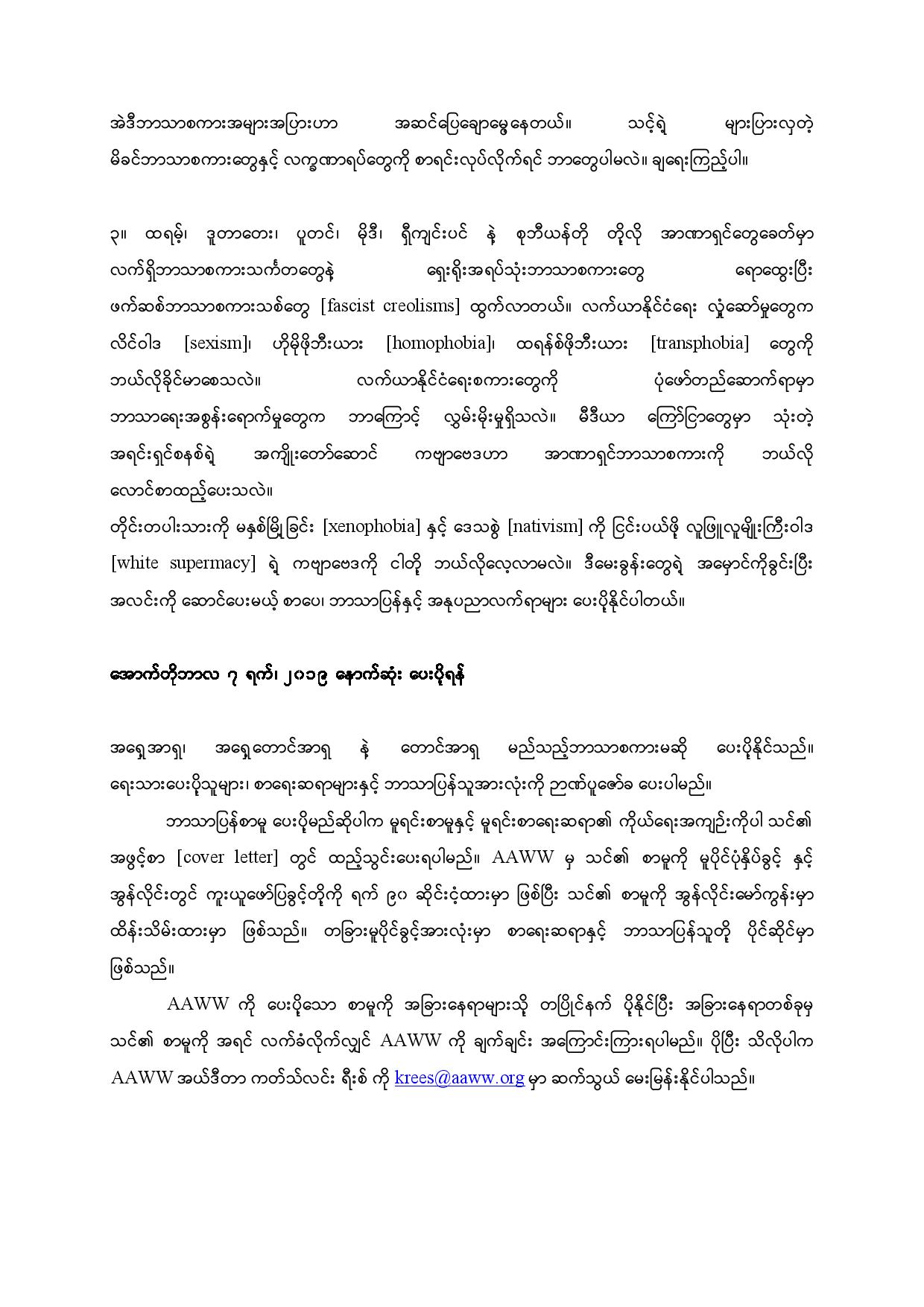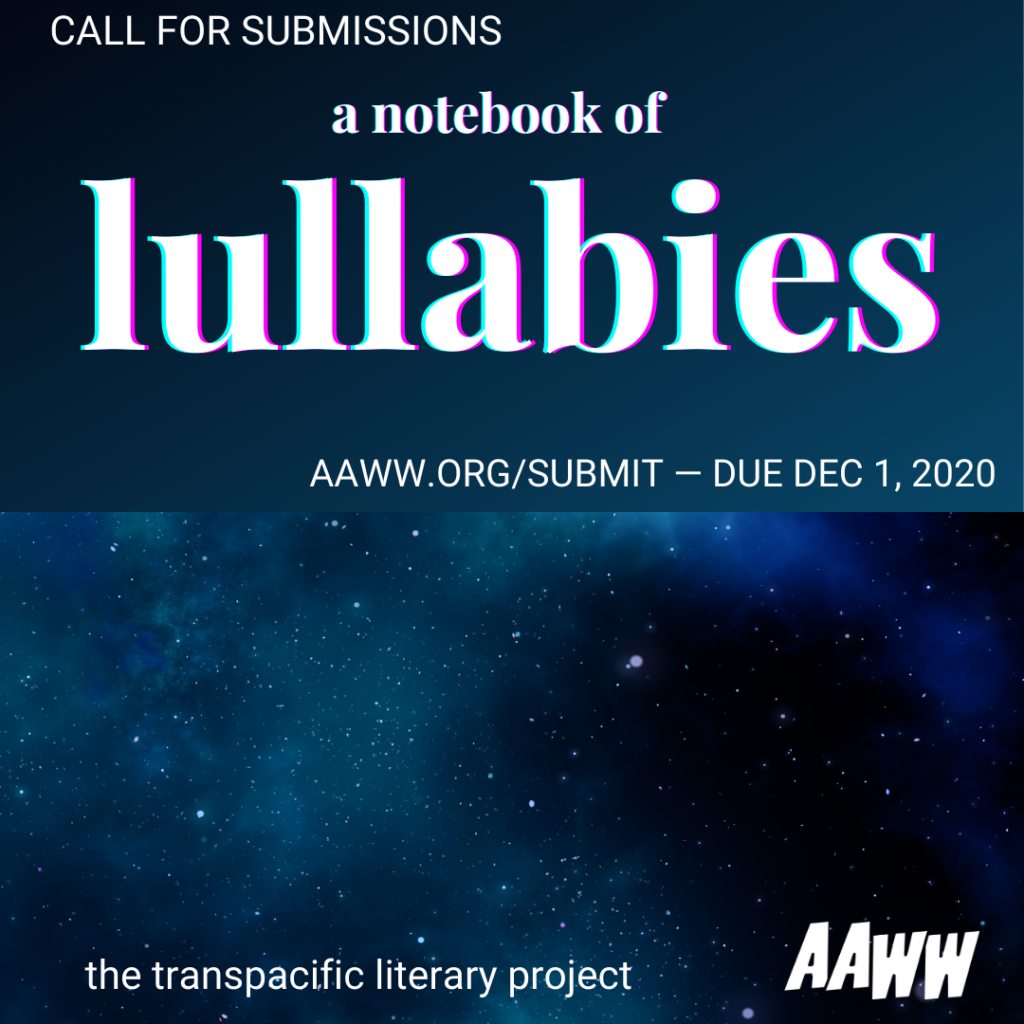A new folio interrogating authoritarian attempts to control formations of self, family, school, and nation. Deadline October 7

August 14, 2019
In Motherless Tongues, scholar Vicente Rafael writes of the “irreducibly insurgent element in every language that undermines attempts at mastery.” “Mastery” can point to a range of things: fluency in a language, supremacy over a person, colonial suppression of a nation. A new folio of the Transpacific Literary Project will celebrate the disobedient and porous nature of language, and interrogate authoritarian attempts (and failures) to control the complex formations of self, family, school, and nation.
Because the “afterlives of empire” can be interminably long, dismantling the languages of domination requires a multi-pronged approach. In probing the insurgent nature of language and languages of (counter)insurgency, consider the following angles as possible points of departure:
1/ Distortions of colonial, hegemonic, and authoritarian languages can work to unsettle the absoluteness of power through slang and inevitable mistranslation. How might the codification of grammar and speech be liberated from/with/in your language? As precious time capsules of the now, how does slang embody shards of otherwise untold social history? And if translation and mistranslation produce infinite meaning and ambivalence across an expansive playground of language, what games go on forever?
2/ Our lexicons are multiple, susceptible to influences all around; our bodies are sites where various languages convene and commingle. Yet this linguistic multiplicity is often situated in and facilitated by unbalanced and unequal relations of power. What would an inventory of your multiply-mothered tongues and traces include? Can you draw it?
3/ In a time of rising authoritarian leadership, of Trump, Duterte, Putin, Modi, Xi Jinping, and Subianto among others, linguistic codes mix with older vernacular variations to forge fascist creolisms. How are sexism, homophobia, and transphobia sustained by rhetorical weapons from the right? Why does the fundamentalist articulation of religion persist in shaping and framing right-wing vernaculars? How do capitalist poetics of the advertising-mass-media complex fuel the language of authoritarianism? How do we engage with the poetics of white supremacy in order to refuse xenophobia and nativism?
Send us writing, translation, and art that throws light into the dark spaces of these questions.
***
Submissions are accepted in any language of East Asia, Southeast Asia, and South Asia*. All contributors, writers and translators, will be paid.
If your submission is a translation, please include the work in its original language as well as a biographical note about the author in your cover letter. AAWW will hold exclusive print and online rights to your piece for 90 days, and your piece will be archived online. All other rights remain with the writer and translator.
Simultaneous submissions are welcome, but we ask that you withdraw the piece promptly if it is accepted somewhere else. If you need more information, please get in touch with editor Kaitlin Rees at krees@aaww.org.
*One of the aims of The Transpacific Literary Project will be to interrogate the idea of the Transpacific, and where exactly the region might lie. As such, the following list of countries should be regarded as indicative and non-exclusive; broadly, East and Southeast Asia consists of: Brunei, Burma, Cambodia, China, East Timor, Guam, Hong Kong, Indonesia, Japan, Laos, Macau, Malaysia, Mongolia, North Korea, Philippines, Singapore, South Korea, Taiwan, Thailand, Vietnam and their diasporas. For this folio, the Transpacific Literary Project expands the scope of submissions to welcome writing and translation from South Asia.



